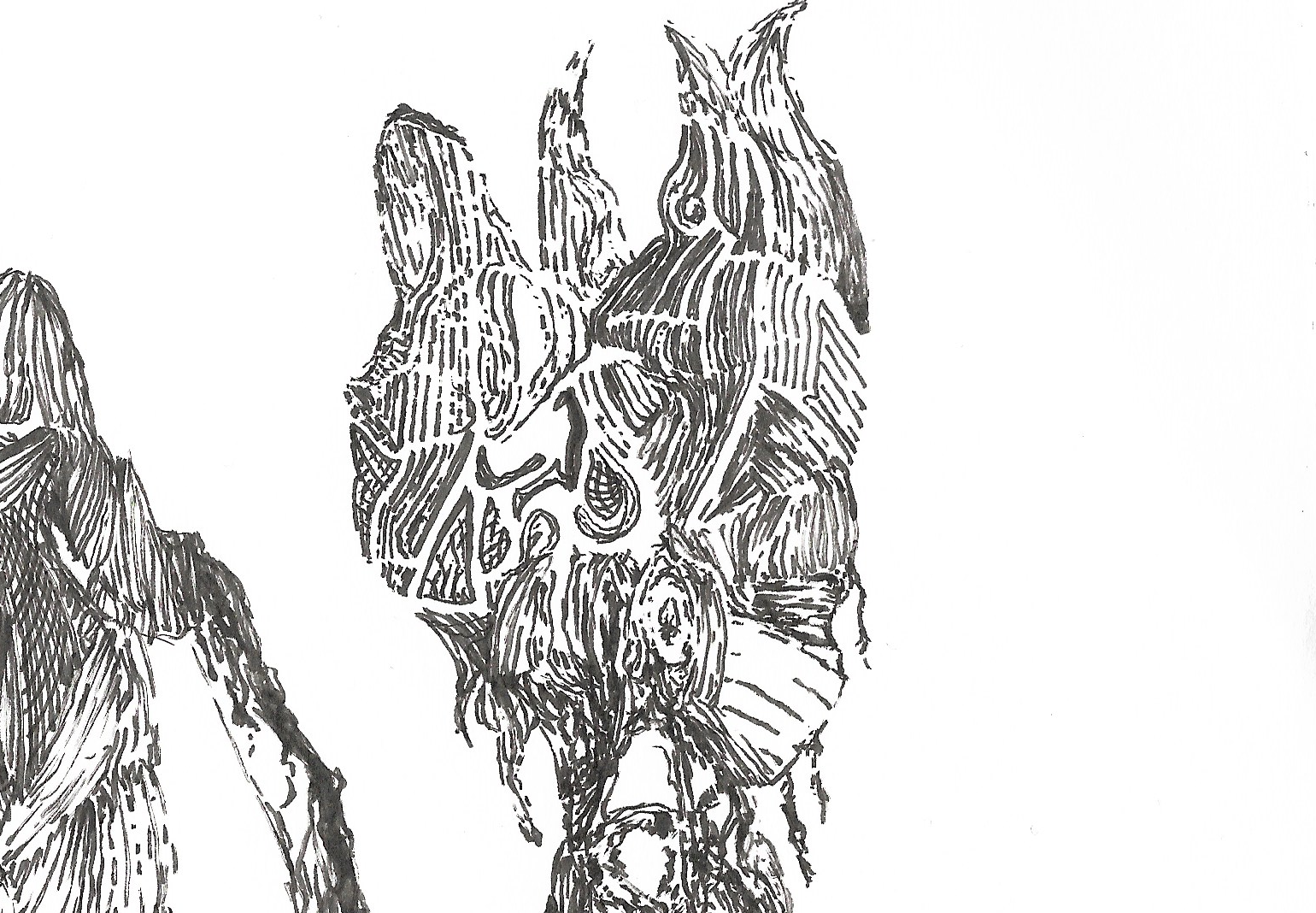I never received formal education in the subject and I want to learn about it so that I may have a better understanding of the philosophy of our political tradition. I'd appreciate any suggestions on materials to get an introduction to the topic.
Which field? As a Marxist, my favorite work is Politzer's Elementary Principles of Philosophy. It goes over Idealism, Materialism, Dialectical Idealism, and then ties it together into Dialectical Materialism, and then Historical Materialism.

Philosophy has a long history, and it builds and rejects and references previous philosophers all the time, so if you want to study all of philosophy, there is no real waste in starting from the "classical" philosophers like Plato, Aristotle, and Socrates, and moving up from there to your Hegel, Decartes, Nietzche, etc, though I personally stick with Marxists.
I guess I want to get to Marx and the anarchists by understanding the history before them, what people's arguments were, and the context for why people asked certain questions and gave the answers they gave.
Also I think it is useful to get a general understanding of even people we disagree strongly with, so it would be important to look into that too.
In that case, I would still read Politzer, as he brilliantly lays it out for the average student, as he was a Professor at a French Worker University. It goes over the entire history of how Marxist philosophy came to be. However, I would follow it up with Socialism: Utopian and Scientific by Engels, who goes over the history of Utopian Socialism and how Socialism came to be Scientific.
For Anarchists, I hear The Conquest of Bread by Kropotkin and Anarchism and Other Essays by Goldman are good. I however have not read them myself.
What general Theory have you read so far?
I'd toss Bukanin on the list for Anarchist theory too. I got a few of his and the ones that you mentioned lined up as soon as I get off my absurdism kick.
Was it you that recommended Elementary Principles to me a few months back? I finally got around to starting it and I'm a bit over halfway through and it's probably going to be my gold standard for understanding not only the pipeline between classical philosophy to Marxism, but it's also a way better resource imo for understanding Material and Historical Dialectics. It's so good and it's very easy to read.
I think so? I've recommended it before. Glad you like it! Read it over the course of a week and it expanded my knowledge of Marxist philosophy dramatically. It's extremely clear and tries to meet everyone, no academic language that might go over untrained heads, without getting dull.
It's absolutely filling in a few holes in my own reading. My former understanding was that Marx and Engels agreed with the conclusion of Hegel's work but not the meat and potatoes of it. This does a good job at answering a lot of the whys so far. Like I basically only knew Hegel, like most religious philosophers as an idealist, and Marx and Engels as Materialists, but outside of organized religion, I wasn't familiar with how those schools of thought evolved over time. Or the fact that Idealism still perpetuates itself in everything around us even today.
For me, 2 of the biggest aspects were the evolution of philosophy over time alongside Mode of Production, scientific developent, and technological development, as well as dialectics as comparing subjects within their contexts and trajectories. Massive change in understanding.
https://plato.stanford.edu/
This ressource carried me through my BA It's like wikipedia for philosophy but made by actual professors, they know all about the nuances and implications of the texts.
Its almost impossible to "get" most of these authors if you don't have a massive dose of context (which mostly means reading a ton of other texts to understand the ideological context of the philosopher you're reading) and this page helps a lot with it.
If you want to be linear, start with the presocratics (the poem of Parmenides is a great start as it poses the ontological problem or being/non being that is still around today), then Socrates-Plato-Aristotle, then you got the boring medieval part with Aquinas and Augustine. Then it's Descartes, Kant, Hume, Locke for the modern philosophy period (Idealism/Empiricism) it pretty much ends with Hegel.
From Kant on there's what we call the Analytic/Continental split and you'll notice that we are heavily slanted towards the analytic tradition here in the anglo-saxon part of the west. Frege, Wittgenstein and Russel would be analytic philosophers whereas Nietzsche, Foucault and Sartre would be on the other side.
Hope that helps if you got questions lmk.
plato.stanford.edu is a useful reference. Entries are written by Western academics so they have a particular bias and flavor to them, but philosophy students more or less have to bookmark this site.
Don't take it as gospel, and know that he's grinding all sorts of axes, but Bertrand Russell's History of Western Philosophy. Every single-volume history of philosophy is going to have its problems, but this one is extremely readable and frequently funny. It will give you enough familiarity with the course of the tradition to know where to go next.
Some intellectual historians who can give good background to particular time periods you might be interested in - Paul Hazard, Karl Löwith, Will Durant. Edmund Wilson's To The Finland Station covers socialist thought from Jules Michelet to the Russian Revolution.
Hang out in the JC section of any library that uses the Library of Congress classification system; that's where they keep political theory.
I'm observing this thread as well. I'm an uncultured brute when it comes to this topic.
For more context, I met a guy who describes himself philosophically as some sort of left anarchist, and I can't really understand what he's saying because of how much formal education he has in the subject (graduate level stuff I suppose). The experience reminded me of my own insecurities about the glaring gaps in my education.
If he can't explain his position to someone who doesn't have a formal education in the subject, he's a dogwater "leftist" and you shouldn't feel intimidated by it.
I don't say this in an anti-intellectual way like almost every thread in c/philosophy seems to be dedicated to, but rather that his grasp of the subject must be poor if all he can do is repeat technical language and cannot relate it to common reference points. It's especially damning for a so-called leftist, who stands for the masses, to have even their basic position be so esoteric.
There are lots of weird and fancy phrases you can use relating to Marxism, but you don't introduce yourself by saying you want the aufhebung of class antagonisms, you introduce it by explaining that you want a radically democratic system that takes every measure it can spare to shut out money from influencing elections and popular opinion in general, and to give power back to the people who make society run rather than the people who legally own things.
I mean, I'm generous in giving the benefit of the doubt to people who are so fixated on technical language. Sometimes people who spend a lot of time in academia focus too narrowly on only communicating with other academics. I try to be diplomatic that way. I don't like confrontation where people pick apart each other That was why in the spirit of the left unity we talk about here, I did emphasize things like radical democracy being one of my chief concerns. It is a very genuinely held belief of mine that helped me move from being a socdem/liberal to being a socialist.
But, I guess he felt my values weren't weren't firmly held enough to meet his standards. Now there are some philosophical questions I never really had looked for elaborate answers to, which made me feel unsatisfied, so I partially took his comment as encouragement to learn more. I don't think there was any sort of malice in him saying that, though I understand your concern given how we here on this site are so weary of people approaching us in bad faith.
I wasn't assuming he was attacking you or speaking in bad faith. I am firm in the assertion that any so-called leftist "intellectual" who [whether due to being lost in the sauce academically or for any other reason] is not able to explain themselves to a normal person is just a clown. The interaction you described should have been a wake-up call to him, not to you (though learning more is of course a good thing). He should realize there's something seriously wrong with his grasp of his own politics that you went away from the conversation baffled.
But, I guess he felt my values weren't weren't firmly held enough to meet his standards.
His sneering attitude makes me pessimistic that he will produce any kind of useful reflection from the encounter.
Anyway, don't worry about me. All that I'm saying is basically that you didn't do anything wrong and you aren't inadequate, though it's great you are seeking to improve. btw I also like HOPWAG like someone else recommended, though I'm sure it will become a pain in the coming years when they get to Marx. Politzer is also cool.
He's a Western graduate student. Even if there is zero malice involved, I would question if he even understands what it means to have 'firm philosophical values'. Especially if his values have never actually been materially challenged in any way (as most of them haven't in the West). It is very condescending to think otherwise.
Personally, I would have told him I would take one leftist with firm grasp of structural and geological engineering design for tunnel systems than one hundred leftists with a firm grasp of philosophical values.
If you just wanna listen this pod has been running 14 years https://historyofphilosophy.net/
Another long running podcast: https://partiallyexaminedlife.com/
I was pretty different back when listening to this so take it with a grain of salt but it was a great way to get introduced to many works in a roughly chronological order (at first).
Massimo Pigliucci had/has a pretty good philosophy podcast. I don’t know his politics however
I've enjoyed Why Theory (podcast). The hosts are pretty interested in film though, so a lot of it drifts into how philosophical concepts are portrayed in that medium. They are both Lacanian/Freud focused but also cover the gambit of Hegel, Fanon, and much more
Look, i'm trying to answer very real flaws i have with solutions i'm likely to be able to execute - are there any summaries of philosophers that would provide context, but permit one to, say, read a book like "of grammatology" without knowing what the fuck Derrida is responding to in every single case? Trusting summary is to trust another person's understanding and intentions in authentic conveyance - but this product may exist, and if it does it may be something I need for the philosophy i'm currently trying to read [derrida lol]
but the point is i'm looking for inroads to philosophy that arent reading everything between plato and whatever the contemporary hot shit philosophers are
Just guess the answer and you'll do better than most, I'm such a hater










